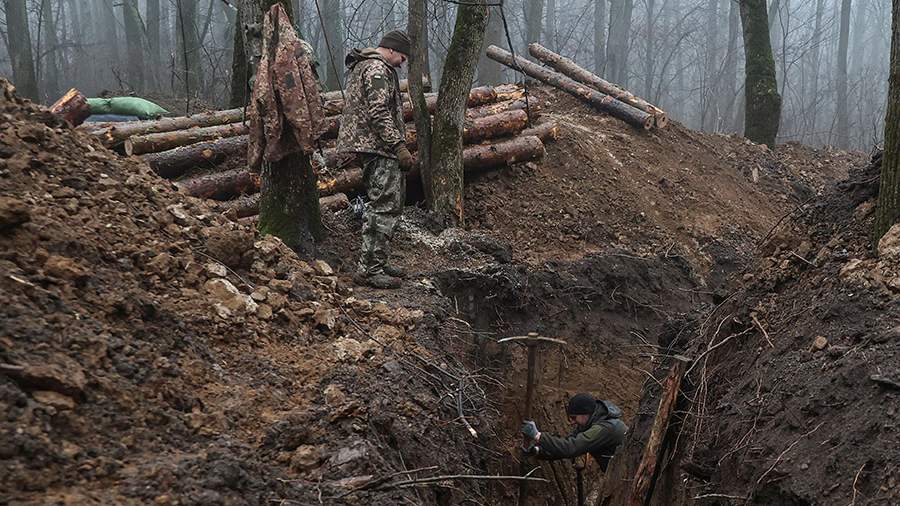Trump changes timeline for 'swift' end to conflict. What the media say

US President-elect Donald Trump promises to make all necessary efforts to resolve the conflict in Ukraine as soon as possible. However, he has changed his pre-election promise to do it "in 24 hours". He now allocates several months to the process. Some European partners took his words as a sign that his administration will not give up immediate support for Kiev. What the world media write about it - in the Izvestia digest.
Neue Zürcher Zeitung: How realistic is an early end to the conflict in Ukraine?
So far, there are only fragmentary ideas for a peaceful settlement. Donald Trump sent a clear signal by appointing former General Keith Kellogg as his special envoy to Ukraine. Kellogg has co-authored a peace plan that calls for a quick cessation of hostilities. But Trump has yet to reveal details of his negotiating strategy.
Neue Zürcher Zeitung
In this situation, one should not simply focus on vague peace projects. The more important question is what a peace treaty should actually govern and what problems it creates. In complex conflicts, diplomats tend to separate issues into different dossiers or "baskets"
There are at least six such "baskets" to consider: armistice conditions, humanitarian and territorial issues, security guarantees, possible sanctions and reparations, and conditions for strategic stability in Europe.
The Financial Times: Donald Trump postpones military conflict in Ukraine as a sign of support for Kiev
US President-elect Donald Trump has changed his campaign promise to end the military conflict in Ukraine "in 24 hours", extending the deadline from days to several months. European partners took it as a sign that his administration would not abandon immediate support for Kiev. Two European officials said that discussions with Trump's team in recent weeks had revealed that it had not yet decided how to end the conflict and that support for Ukraine would continue after the US president's inauguration on January 20.
The Financial Times
The new administration is also wary of comparisons with Joe Biden's disastrous withdrawal of US troops from Afghanistan, and the Trump camp would not want a repeat of that in Ukraine, the official added. European leaders and officials are arguing to Trump and his team that continued U.S. military aid is necessary to put Kiev in a stronger position for peace talks and to help Moscow get to the negotiating table
According to a former senior Kremlin official and another person who has had discussions with the Russian president, Vladimir Putin's main goal in the talks was to create new security agreements that would ensure Ukraine never joins NATO and that the U.S.-led military alliance pulls back from some of its eastern deployments. That said, Trump himself wants to wind down NATO anyway. Anything could end up happening, the publication's source acknowledged.
Bloomberg: Ukraine's defeat will cost the U.S. much more than aid
Russia's victory in the military conflict will not save money on U.S. weapons supplied to Ukraine, but will require the Pentagon to increase spending by more than $800 billion through 2029, the conservative think tank says in a new report.
Bloomberg
That amount would be needed for the U.S. to deter, and if necessary, repel a non-nuclear attack by Russia outside of Ukraine
The amount would change the U.S. Defense Department's current five-year plan through 2029, increasing it from $4.4 trillion to $5.2 trillion, about $165 billion a year more than the current plan. It places a big emphasis on Asia. Experts have concluded that supporting Ukraine is in America's interest from a financial point of view.
The New York Times: the USA saw an opportunity in arming Ukraine
Arming Ukraine, which was part of the Soviet Union, with NATO combat aircraft such as F-16s and mobile missile launchers - such as HIMARS - has disconnected more countries from the Russian orbit. This shift can also be seen in the composition of the contact group, which includes 20 countries that were formerly within Moscow's sphere of influence during the Cold War. Some of them continued to buy Russian weapons right up until the conflict in Ukraine began.
The New York Times
The composition of the contact group demonstrates a new approach to projecting American power that U.S. officials say future administrations could use in the event of major conflicts, such as a potential Chinese attack on Taiwan
While NATO has always been an alliance of countries that have pledged to come to each other's aid in the event of an attack, its influence has extended far beyond its formal membership of 32 countries through partnerships with dozens of others since the mid-1990s. The United States used that network in setting up the contact group.
Politico: EU ready to take the lead on Ukraine if the U.S. no longer wants it
European Union diplomatic chief Kaja Kallas said the EU is ready to take the lead on supporting Ukraine if the United States is no longer willing to do so.
Politico
"All EU members, and probably the United States as well, are ready to continue to support Ukraine," Kallas said on her way to a meeting of Ukraine's allies in Ramstein, Germany
The European Union is also ready to take that leadership if the United States is unwilling, she said, adding that future U.S. support should not be speculated about right now. At the same time, Kaya Kallas is sure that it is not in America's interest for Russia to be the strongest in the world.
Переведено сервисом «Яндекс Переводчик»

